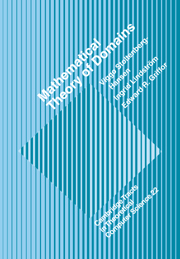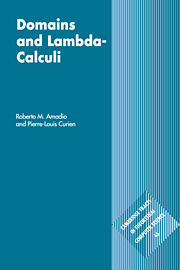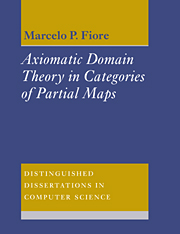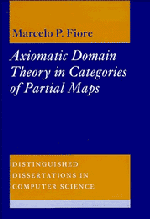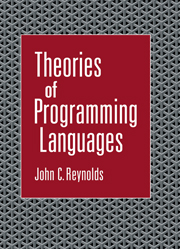Mathematical Theory of Domains
Domain theory is an established part of theoretical computer science, used in giving semantics to programming languages and logics. In mathematics and logic it has also proved to be useful in the study of algorithms. This book is devoted to providing a unified and self-contained treatment of the subject. The theory is presented in a mathematically precise manner which nevertheless is accessible to mathematicians and computer scientists alike. The authors begin with the basic theory including domain equations, various domain representations and universal domains. They then proceed to more specialized topics such as effective and power domains, models of lambda-calculus and so on. In particular, the connections with ultrametric spaces and the Kleene–Kreisel continuous functionals are made precise. Consequently the text will be useful as an introductory textbook (earlier versions have been class-tested in Uppsala, Gothenburg, Passau, Munich and Swansea), or as a general reference for professionals in computer science and logic.
- First elementary, self-contained but rigorous treatment
- Class-tested at several universities
- Can be used as text or reference
Reviews & endorsements
Review of the hardback: '… can be thoroughly recommended for anyone interested in computability.' Steven Vickers, The Computer Journal
Product details
No date availablePaperback
9780521064798
364 pages
244 × 170 × 19 mm
0.58kg
150 exercises
Table of Contents
- Preliminaries
- Part I. Basic Theory:
- 1. Fixed points
- 2. Complete partial orders
- 3. Domains
- 4. Domain equations
- 5. Topology
- 6. Representation theory
- 7. A universal domain
- Part II. Special Topics:
- 8. Representability in domains
- 9. Basic recursion theory
- 10. Effective domains
- 11. Power domains
- 12. Domains as models of formal theories
- References
- Index of symbols
- Index.

